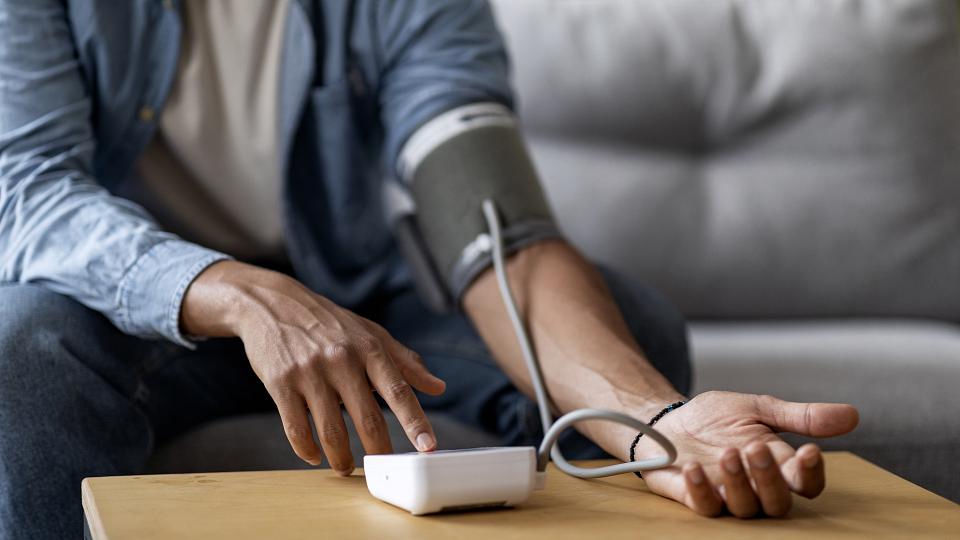Erectile dysfunction (ED) is more common than many men realize, and with the growing openness around men’s health, treatments like Viagra, Cialis, and Levitra have become increasingly mainstream. These medications can offer fast, reliable results—often restoring not just sexual performance but also confidence and relationship satisfaction.
Recommended: Is CoQ10 Effective for Erectile Dysfunction Treatment?
But while occasional use is widely accepted and medically supported, many men wonder: Are ED pills safe to take over the long term? Whether you’re taking them regularly or just thinking ahead, it’s a valid and important question. Like any medication, ED pills can have side effects and potential risks, especially when used frequently or over several years.
In this article, we’ll explore what the science says about the safety of long-term ED pill use, the potential side effects, what to watch out for, and how to approach treatment in a way that supports your overall health and well-being.
How ED Pills Work

Erectile dysfunction pills like Viagra, Cialis, and Levitra are designed to help men with erectile dysfunction by increasing blood flow to the penis. They work by blocking an enzyme called phosphodiesterase type 5 (PDE5), which breaks down a chemical (cGMP) that relaxes blood vessels. By preserving this chemical, the medications help blood vessels in the penis stay open longer, making it easier to achieve and maintain an erection during sexual arousal.
These medications don’t cause spontaneous erections—they only work when there is sexual stimulation. Each has a slightly different onset and duration: Viagra and Levitra last around 4 to 6 hours, while Cialis can remain effective for up to 36 hours. It’s important to note that ED pills don’t increase libido or treat the underlying emotional or hormonal causes of ED. Instead, they support the physical mechanism of erection, which is why proper use and regular consultation with a healthcare provider are especially important for those considering long-term use.
Recommended: How to Rebuild Confidence After Sexual Failure
Are ED Pills Approved for Long-Term Use?
Yes, ED pills such as Viagra (sildenafil), Cialis (tadalafil), and Levitra (vardenafil) are approved for long-term use, provided they are prescribed and monitored by a healthcare professional. These medications have undergone extensive clinical testing not just for short-term safety and effectiveness, but also for regular, ongoing use in men who experience chronic erectile dysfunction.
While originally studied in the context of occasional use, follow-up research and post-marketing surveillance have shown that many men safely take ED pills for months or even years without serious complications. In fact, some men with persistent ED due to age, diabetes, or other health conditions use these medications as part of their long-term treatment strategy. However, safety depends on individual health factors, such as heart health, medication interactions, and underlying causes of ED. That’s why regular medical checkups are essential to ensure the continued safe use of ED medications over time.
Potential Side Effects of Long-Term ED Pill Use
While ED pills are generally safe for long-term use when prescribed by a healthcare professional, there are potential side effects to be aware of. Here are some of the most common and serious side effects associated with prolonged use:
1. Headaches
A common side effect of ED pills is headaches, which occur in many users due to the medication’s effect on blood vessels. This is usually temporary and can be managed with over-the-counter pain relief if needed.
Recommended: Can a Common Cold Cause Erectile Dysfunction?
2. Facial Flushing
Many users experience a warm sensation or redness in the face, neck, or chest due to the dilation of blood vessels. This side effect is generally mild and goes away after a few hours.
3. Nasal Congestion
Some men report stuffy or runny noses as a result of ED pills, which can occur because these medications also affect the blood vessels in the nasal passages. This effect is usually mild but may be bothersome for some.
4. Low Blood Pressure

For men with heart disease or those taking medications like nitrates, ED pills can cause a dangerous drop in blood pressure. This can lead to dizziness, fainting, or heart problems, so men with cardiovascular conditions should only use ED pills under strict medical supervision.
5. Indigestion or Upset Stomach
ED pills can cause gastrointestinal issues, such as indigestion, heartburn, or nausea. These issues are usually temporary and can be minimized by taking the medication with food or avoiding heavy meals beforehand.
6. Priapism
Priapism is a rare but serious condition where an erection lasts for several hours, causing pain and potential permanent damage to the penis. If left untreated, it can lead to tissue damage, so it’s important to seek immediate medical attention if an erection lasts longer than four hours.
Recommended: Where do You Put TENS Pads for Erectile Dysfunction?
7. Back and Muscle Pain (Cialis)
Some users of Cialis may experience muscle aches or back pain as a result of the medication’s effects on blood flow. This tends to be temporary and resolves within a day or two.
Do ED Pills Cause Dependence?
ED pills like Viagra, Cialis, and Levitra do not cause physical dependence, as they only provide temporary effects and do not alter the body’s chemistry in a way that would lead to withdrawal symptoms or cravings. The medications work by enhancing blood flow during sexual activity, and once their effects wear off, the body returns to its baseline. Unlike substances that create lasting physical changes, such as opioids or alcohol, ED pills do not cause chemical dependency. As such, users can stop taking them without experiencing physical withdrawal.
Recommended: How to Fix Delayed Ejaculation from Antidepressants
However, psychological dependence can develop if a person begins to rely on ED pills for sexual confidence or performance, even when they may no longer need them. This can lead to increased anxiety or stress about sex without the medication, creating a cycle where the individual feels they can’t perform without the pill. While ED pills are a useful tool for managing erectile dysfunction, it’s important to use them mindfully and consult a healthcare provider if you feel overly reliant on them.
Conclusion
While ED pills are effective in managing erectile dysfunction and are not physically addictive, they can lead to psychological dependence if relied upon excessively. It’s important to recognize that these medications should be used as part of a broader approach to sexual health, which may include addressing underlying psychological, emotional, or physical factors contributing to ED.
For those who feel overly dependent on ED pills, it’s crucial to consult with a healthcare provider to explore other treatment options, develop healthier coping strategies, and ensure overall well-being. With proper guidance and mindful use, ED pills can be a helpful tool without leading to long-term reliance or negative consequences.
